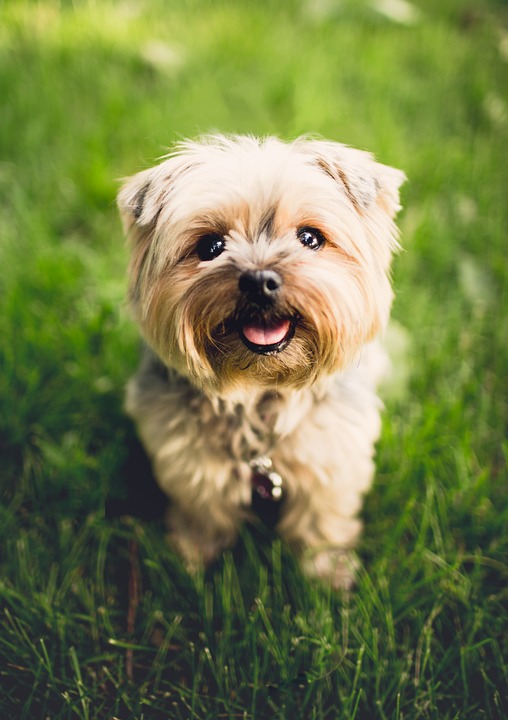As our furry friends age, their needs change, and it becomes crucial to provide them with special care and attention. Senior dogs require a different approach to their overall well-being, including their nutrition, exercise, grooming, and veterinary care. In this comprehensive guide, we will explore various aspects of senior dog care, providing you with valuable tips and advice to ensure your aging companion remains happy and healthy.
Understanding the Aging Process in Dogs
Just like humans, dogs experience various age-related changes as they grow older. Understanding these changes can help us provide the best possible care for our senior dogs. Here are some common signs of aging in dogs:
1. Decreased energy levels: Senior dogs tend to be less active and may show less interest in playtime or exercise.
2. Weight gain or loss: Metabolic changes can lead to weight gain or loss in senior dogs. Monitoring their weight and adjusting their diet accordingly is essential.
3. Joint stiffness and arthritis: Aging dogs often experience joint stiffness, making it harder for them to move or jump.
4. Dental issues: Dental problems, such as gum disease or tooth loss, become more prevalent in older dogs.
5. Altered senses: Senior dogs may experience a decline in their hearing and vision, requiring adjustments in their environment and communication methods.
Proper Nutrition for Senior Dogs
A well-balanced diet is crucial for maintaining your senior dog’s health and vitality. Here are some tips to consider when it comes to their nutrition:
1. Quality senior dog food: Switching to a high-quality senior dog food specifically formulated for their needs can provide the necessary nutrients and support their aging bodies require.
2. Weight management: Obesity can exacerbate age-related issues. Monitor your dog’s weight and consult your veterinarian to determine the appropriate caloric intake.
3. Supplements: Certain supplements, such as joint support or omega-3 fatty acids, can aid in maintaining joint health and cognitive function in senior dogs. Consult your vet before introducing any supplements.
Exercise and Mental Stimulation
While senior dogs may not have the same energy levels as before, regular exercise and mental stimulation are still vital to their overall well-being. Here’s how you can keep your aging companion active and engaged:
1. Gentle exercise routine: Engage in low-impact exercises like short walks, swimming, or gentle play sessions, tailored to your dog’s abilities and limitations.
2. Puzzle toys and games: Mental stimulation is essential for senior dogs. Incorporate puzzle toys or interactive games to keep their minds sharp and prevent cognitive decline.
3. Environmental enrichment: Create an enriching environment with toys, new scents, and different textures to keep your senior dog engaged and curious.
Grooming and Hygiene
Maintaining proper grooming and hygiene practices is essential for your senior dog’s comfort and health. Consider the following tips:
1. Regular brushing: Brush your aging dog’s coat more frequently to prevent matting and keep their skin healthy.
2. Nail trimming: As older dogs tend to be less active, their nails might not naturally wear down. Regular nail trims are essential to prevent discomfort or potential injuries.
3. Dental care: Brush your dog’s teeth regularly and schedule professional dental cleanings as recommended by your veterinarian to prevent dental disease.
Veterinary Care and Health Monitoring
Regular veterinary care is crucial for keeping senior dogs healthy. Here are some essential aspects to consider:
1. Regular check-ups: Schedule regular veterinary visits to monitor your dog’s overall health, catch any potential issues early, and update vaccinations.
2. Bloodwork and screenings: Regular blood tests can help identify age-related conditions, such as kidney or liver disease, allowing for early intervention.
3. Pain management: Senior dogs are more prone to pain from arthritis or other conditions. Ensure your veterinarian addresses any pain management needs to enhance your dog’s quality of life.
FAQs about Senior Dog Care
Q: When is a dog considered a senior?
A: Dogs are generally considered seniors around the age of 7, but this can vary depending on the breed and size.
Q: Should I switch my senior dog to a different diet?
A: Yes, transitioning to a senior-specific dog food can provide the necessary nutrients for your aging companion. Consult your veterinarian for recommendations.
Q: How often should I exercise my senior dog?
A: Senior dogs require regular exercise, but the intensity and duration should be adjusted to their abilities. Aim for daily short walks or gentle play sessions, and consult your veterinarian for guidance.
Q: Should I continue vaccinating my senior dog?
A: Yes, vaccinations are still important to protect your senior dog from diseases. Consult your veterinarian to determine the appropriate vaccination schedule.
Q: How can I ensure my senior dog’s comfort if they have joint issues?
A: Providing orthopedic bedding, gentle exercise, joint supplements, and potential pain management options can help alleviate discomfort caused by joint issues.
Remember, every senior dog is unique, so it’s essential to tailor their care based on their individual needs. By providing proper nutrition, exercise, grooming, and veterinary care, you can ensure your aging companion enjoys a happy and healthy life by your side.









